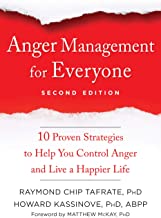Intermittent Explosive Disorder
Intermittent explosive disorder involves repeated, sudden episodes of impulsive, aggressive, violent behavior or angry verbal outbursts in which you react grossly out of proportion to the situation.
Cluster Number:
Wiki Number: W108
Diagnosis: Intermittent Explosive Disorder
US Patients: 16 Mil- May also be due to lesions in the prefrontal cortex, amygdala reducing the regularity of insulin
World Patients:
Sex Ratio: M+;W
Age Onset: Age 6
Brain Area: low on serotonin from the hypothalamus’s suprachiastmatic nucleus, outputting serotonin from the raphe nuclei; may be hereditary
Symptoms: Outbursts of anger, rage and/or violence disproportionate to the situation
Progression:
Causes: Infections from the toxoplasma gondii parasite and psychatrice aggression
Medications: Ant-depressants, SSRI’s and mood stabilizers.
Therapies: CBT, Cognitive Relaxation and Coping Skills Therapy -learning to resist impulses.
Youtube Video: Intermittent Explosive Disorder
Amazon or Library Book: Anger Management for Everyone

Click the book to link or order from Amazon.
